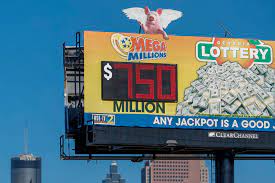Around the world, serious lottery players are searching for lottery number patterns that will provide them with a possible edge over just about every player in the world. The belief is that there is a numerical equation that can be used to improve your chances of winning the lottery. The belief is that there are historical data that can be used to identify the best number combinations to be placed in a lottery ticket.
The truth is, while there may be some truth to such an idea, any serious lottery player will tell you that such claims are virtually impossible. You would be amazed at the number of players who purchase tickets each week trying to improve their chances of winning, but all of them usually fail to improve their chances of winning any money. There is no statistical way to predict the winning numbers, or ways to increase the mathematical odds that would let you win the big jackpot.
However, there is one group of lottery players that is more than happy to exploit the curiosity of lottery players and try to teach them an effective lottery number strategy that can significantly improve their chances of winning some money playing the lottery. The group consists of people who are seeking to make a good profit from the lottery, whether it’s the Powerball Megamillion, or other lottery games.
These so-called professionals claim that although you can’t predict the winning numbers in a lottery, there are ways to improve your chances of winning by using a previously unknown mathematical principle called near-optimal mathematics. They believe that there is a way to convert the known probabilities of a lottery event such as a single number coming up into an approximately 0.1% probability. They call this the “golden number principle.”
Although far-fetched, the idea of a “golden number principle” is not impossible to some people. A few years ago, a British mathematician, whose name was Richard Jones, did indeed develop a way to use the principles of near-optimal mathematics to predict the winning numbers for the British Lottery. Jones adapted his idea of near-optimal mathematics to the lotto, and named his method the “Gamblers’ Fallacy.” He actually won himself, but not before spending several years and losing significant sums of money.
Simulator Cards
How does the “Gamblers’ Live Rtp” actually work? Let’s use the classic game of roulette, on which bias has already been explored. Assuming we have a history of previous spins of the wheel, we can place a bet on say the Odds on black, or even. If we then get black or even numbers on our first four spins, we then proceed to bet again on the same Odds on black and even numbers, respectively. If the outcome is another black or even number, we keep betting on the same Odds on black and even numbers. What Jones’ method does is exactly the same thing, but with a twist.
If you happen to win, you would bet the same amount again, and what Jones’ method does, is to lay your odds bets the same as you would have in the event of a win. Thus, you are not gambling, because no one knows if you will actually come out on top. That is the basis of the joke.
If you haven’t yet seen the light, however, you can also lay odds bets of your own. That is the crux of the method. You are essentially capitalizing on your own knowledge, and since you are the only one who knows what numbers would come up, you can take advantage of the joy of knowing what numbers came up last time.
In the end, the near-optimal solution to many lottery problems can be found by combining a few of the methods outlined in this article. That, however, is an article, and at this point, we would like to hear from you, the reader, on what you think of this method. Have you tried it? Would you like to use it? Is there another way you think this method could be improved? Please feel free to post your opinion in the box below.
